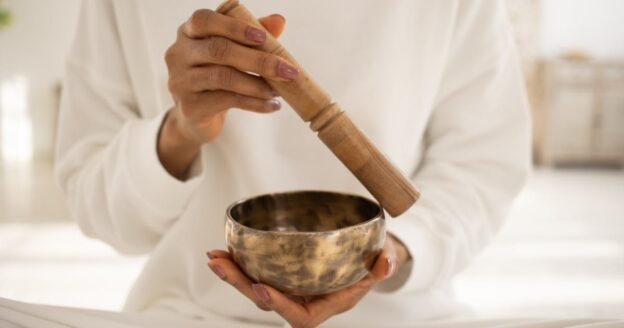Did you know that spiritual well-being plays a pivotal role in sustaining long-term recovery? Yes, recovering from an addiction involves more than just physical and mental healing. It also encompasses spiritual well-being. Regardless of your personal beliefs or religious affiliations, nurturing your spirit plays a pivotal role in sustaining long-term recovery. Remember – you can be spiritual without being religious!
Let’s explore some valuable strategies and practices that can help you cultivate and maintain spiritual wellness during the recovery journey.
Mindfulness and Meditation
Mindfulness and meditation are powerful tools that can aid in spiritual growth. They encourage living in the present moment, fostering self-awareness and developing a deeper connection with oneself. By practicing mindfulness, you can better understand your emotions, thoughts and triggers, fostering inner peace and stability.
Explore Spirituality on Your Terms
Recovery offers an opportunity to explore and define spirituality based on personal beliefs and experiences. Whether through organized religion, nature, art or introspection, discovering what resonates with your soul is crucial. Engage in activities or practices that align with your values and bring a sense of meaning and purpose to your life.
Foster Connection and Community
Building connections with others who share similar values and goals is integral to spiritual well-being. Engage with support groups, recovery communities or spiritual groups that offer encouragement, guidance and a sense of belonging. Sharing experiences and supporting each other’s journeys can be immensely fulfilling and empowering.
Practice Gratitude and Service
Gratitude is a transformative practice that cultivates a positive mindset. Take time each day to reflect on things you’re grateful for—simple pleasures, moments of joy or supportive relationships. Additionally, engaging in acts of service or volunteering can provide a sense of fulfillment and purpose, contributing to your spiritual growth.
Embrace Self-care Rituals
Incorporating self-care rituals into your daily routine nurtures your spiritual well-being. This could involve activities like yoga, journaling, spending time in nature or engaging in hobbies that bring you joy. Prioritize activities that replenish your energy and contribute positively to your overall well-being.
Seek Guidance and Spiritual Resources
Exploring literature, podcasts or attending workshops related to spirituality in recovery can provide guidance and inspiration. Consulting with a spiritual leader, counselor or mentor can also offer valuable insights and support as you navigate your spiritual journey.
Embrace Forgiveness and Letting Go
Recovery often involves addressing past traumas, guilt or resentment. Embracing forgiveness, both towards oneself and others, is a crucial aspect of spiritual well-being. Letting go of negativity and focusing on healing and personal growth can uplift the spirit and facilitate inner peace. Plus, it feels wonderful not to be held captive by the past.
Holistic Healing is a Transformative Journey
Nurturing your spiritual well-being during the recovery journey is an essential aspect of holistic healing. It involves exploring and embracing practices that resonate with your inner self, fostering connections and prioritizing self-care and gratitude – all things you can achieve at Awakenings Treatment Center.
Remember, spiritual wellness is a deeply personal journey – there’s no one-size-fits-all approach. By incorporating these practices into your life, you can cultivate a stronger sense of purpose, inner peace and resilience to support your continued recovery and well-being.








